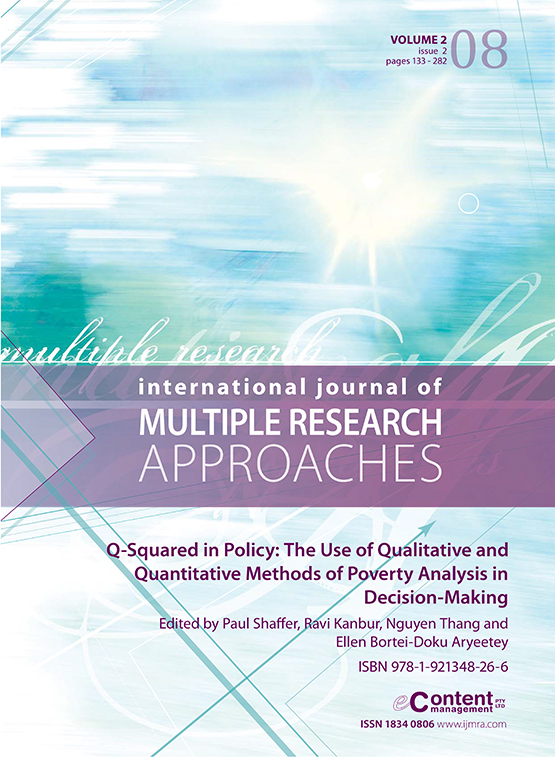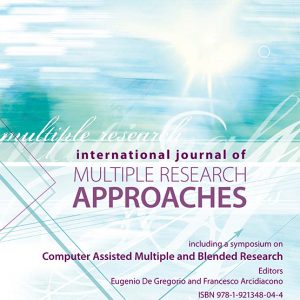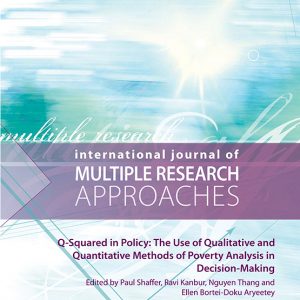2(2).06. Combined methods in poverty analysis: Experiences from Namibia
$30.00
Description
Combined methods in poverty analysis: Experiences from Namibia
SEBASTIAN LEVINE
Senior Economist, United Nations Development Programme, Windhoek, Namibia
BENJAMIN ROBERTS
Research Specialist, Human Sciences Research Council, Durban, South Africa
ABSTRACT
We explore differences in the findings on poverty in Namibia from a series participatory poverty assessments and a household survey on household income and expenditure. We find that the main conclusions from these research processes appear plausible even if they point to diverging paths of poverty. These results are attributed to methodological challenges and especially to different perceptions about the determinants of poverty that each approach conveys. Using a Q-Squared approach we illustrate that when definitions of poverty based on the perceptions raised in the qualitative assessments are used on the quantitative data then the results tend to converge. One particularly interesting finding is that those identified as poor using the official poverty measure, established explicitly to capture deprivation in consumption expenditure, have higher average levels of consumption expenditure than a combined Q-Squared measure based exclusively on non-monetary criteria. We generally find that while there might have been a real improvement in consumption-based measures of poverty over time, given the emphasis on issues related to assets, access to and quality of delivery of basic services, and issues related to vulnerabilities (especially food insecurity and the AIDS epidemic) in the participatory poverty assessments, it is not surprising that the qualitative data point to deteriorating living conditions.
Keywords: Namibia; mixed methods; participatory poverty assessment; household surveys


